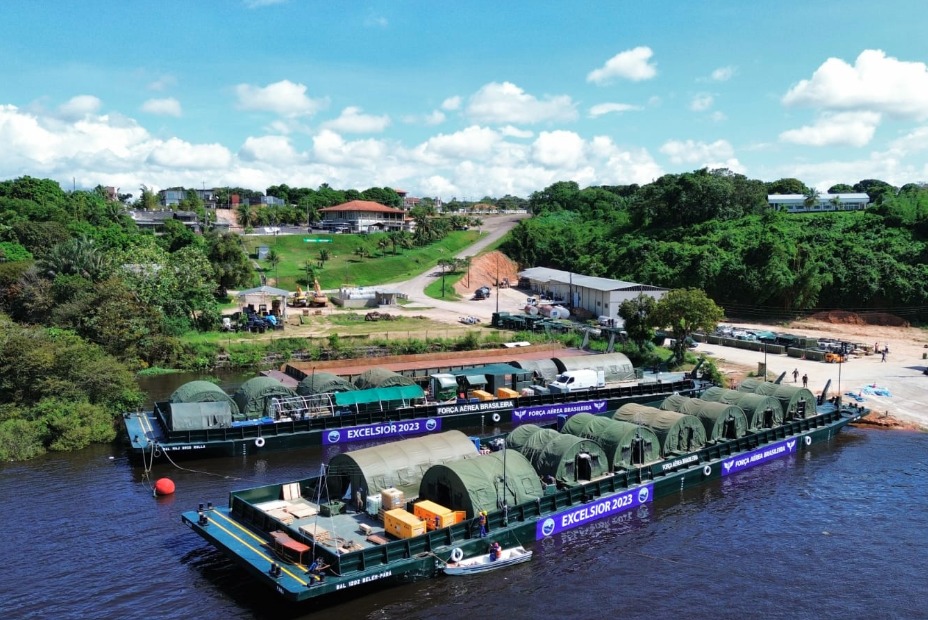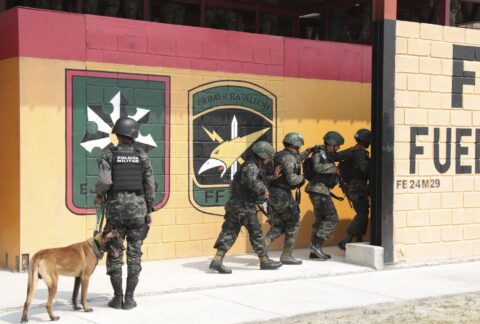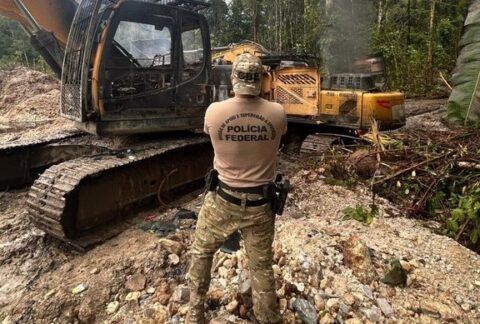The Brazilian Air Force (FAB) brought much-needed medical assistance to communities along the Negro River, in the cities of Moura and Barcelos, in the state of Amazonas. The Logistics, Health and Operational Quartermaster Employment Campaign Exercise (EXCELSIOR), May 26-June 4, assisted some 600 people a day, exceeding expectations, the FAB indicated.
To provide medical care, FAB set up a field hospital (HCAMP), which offered access to the following specialties: orthopedics, pediatrics, gynecology, clinical medicine, dermatology, proctology, physical therapy, and dentistry. Other services available included psychological care and social and religious services.
FAB First Lieutenant Larissa Cardoso Alvim Lima, a gynecologist and obstetrician who participated in the exercise, told Diálogo that mobilizing and assembling a hospital with several specialties, as well the coordination required in each city, showed the complexity of the activity. “We had to thoroughly plan for the material and the equipment that would be necessary in the services so that nothing would be lacking and so that they could be resolute no matter the situation,” 1st Lt Larissa Alvim said.
EXCELSIOR had the participation of 51 medical military personnel, in addition to more than 50 service members involved in transportation, logistics, and service delivery in the region. According to 1st Lt Larissa Alvim, EXCELSIOR also provided training and allowed for the various teams involved to work together, including several military organizations of the Brazilian Air Force.

Help to the Yanomami
As part of Operation Yanomami, conducted by the Amazon Joint Operational Command, FAB also provided medical assistance to the Yanomami people, for example, through the HCAMP that was set up at the Support Center for Indigenous Health (CASAI), in Boa Vista, Roraima state, on February 3, and which provided 2,000 consultations in more than 80 days of operations.
“At the HCAMP Yanomami we were able to attend to indigenous people who had already been removed from Yanomami territory and who presented some health needs requiring treatment in the capital. CASAI was home to indigenous people of different ethnic groups, among them: Yanomami, Yekuana, Sanumã, Xiriana, and Xirixana,” 1st Lt. Larissa Alvim said.
Operation Yanomami is one of the largest ever carried out by the Brazilian government using the Armed Forces, both because of the size of the area — the Yanomami Indigenous Land covers 96,700 square kilometers and has more than 300 indigenous villages — and because of the aerial means employed.

Combating crime
The objective of Operation Yanomami, besides providing medical assistance, is to combat the various crimes that criminal groups carry out in the Amazon region, which affect the sustainability of indigenous communities. One such example was the interception by the FAB of an illicit aircraft, on June 2, over the Yanomami Indigenous Land.
“The illicit plane was identified, intercepted and accompanied by FAB aircraft […]. After the interception, the illegal aircraft landed on a dirt road about 70 km northwest of Boa Vista, Roraima. Its crew members fled with two motorcyclists who were already waiting for them on the spot. On the ground, agents of IBAMA [Brazilian Institute of the Environment] rendered the intercepted aircraft inoperable,” the FAB said in a statement.
In addition to Operation Yanomami, authorities also conducted Operation Agate Amazon (Operação Ágata Amazônia) May 16-23. The initiative included the participation of 1,320 Navy, Army, and Air Force personnel, as well as seven ships, eight boats, and 10 aircraft, with the aim of preventing, controlling, inspecting, and repressing cross-border crimes.
According to information from the Ministry of Defense, the two operations have already yielded important results: “Approximately 1,600 kg of drugs seized, in addition to the destruction of eight aircraft and 122 illicit vessels,” the Defense Ministry said.
“The joint action of the Navy, Army, and FAB, in cooperation with government agencies, has already resulted in the seizure of $16.5 million in drugs, such as base paste, cocaine, and skunk marijuana,” the Defense Ministry added.









